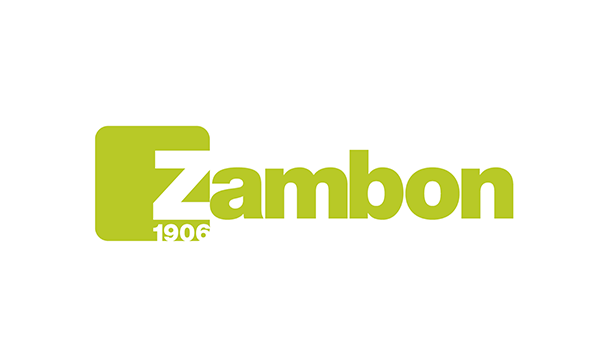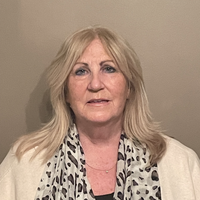Before you watch this webinar
Enhancing your learning experience begins with understanding you better. Collecting data enables us to tailor our educational content specifically for our audience. Discover more about how we handle your information in our Privacy Policy.
Event
Symptom management in motor neurone disease
Our sponsor

MND Academy webinar
How does the MDT work together to support the patient with MND? Who should be involved in the patients care?
Topics for discussion
- What are the symptoms of MND?
- What are the physical, emotional and psychological needs that need addressing
- Who else of the multi-disciplinary team needs to be involved
Presentation slides
Summary
Symptom management in motor neurone disease
There is no cure for motor neuron disease (MND) and disease modifying therapies (DMTs)for the complex condition are limited. However, early intervention and symptom management, delivered by a multidisciplinary team (MDT), can enhance quality of life and may also improve survival.
Which is why Beaumont Hospital, in Dublin, has developed an inhouse and national outreach integrated MND nursing service. It takes a leading advisory role on patient management, seeing patients where they reside, and maintaining close telephone contact with them, their families, and other healthcare professionals (HCPs) in between appointments. It coordinatescare from across the wider MDT, including neurologists, social workers, psychologists, and dietitians, as well as speech and language, physio, and occupational therapists.
“Clinical management is palliative from the time of diagnosis. It focuses on symptom control and the adjustment to the progressive loss of neurological function with the certainty of early death,” said Bernie Corr, MND candidate advanced nurse practitioner at Beaumont Hospital.
Challenging management
The multidisciplinary, personalised approach is crucial in MND, due to the unpredictable disease course. “We could have two people diagnosed at Christmas, and by Easter time, they will both have proceeded on quite a different trajectory,” said Bernie, adding that the “relentlessly progressive neurological disorder” culminated in complete dependence on others.
“For people with MND, today is as good as it gets,” she said. “They will never regain any ground that has been lost.”
The service’s main goal is to improve quality of life by improving symptoms, anticipating the needs of patients and carers, and avoiding crises. It also involves environmental adaptions, to promote activities of daily living and help maintain independence, as well as promoting autonomy and ensuring dignity. Bernie’s team sees people every four to six weeks, and those with higher needs more regularly.
“Despite the challenges, fewer than 6% of our patients are admitted to hospital because we manage most of the symptoms at home,” she said.
Symptoms and management
MND symptoms depend on whether the disease starts in the upper motor neurons, in the brain, or the lower motor neurons, in the spinal cord. Upper motor neurons signs include slurred speech, emotional lability, spasticity, paresis, decreased fine movements, brisk reflexes and upgoing plantars. Lower motor neuron signs include wasting, weakness, and fasciculations.
Healthcare teams tend to classify MND as “normal”, MND with cognitive impairment, either executive or non-executive, or MND with frontotemporal dementia (FTD). The clinical features of FTD, such as lack of judgment, empathy or impulse control, inappropriate or repetitive behaviour, and a new onset of criminal behaviour, can be particularly challenging to manage.
Bernie advised teams to identify such cognitive and behavioural deficits early, and to communicate clearly with the patients and their families. “It is important to say that it is the illness causing the inappropriate behaviour, not the person,” she said, adding that it was just as important to provide support for healthcare professionals. “We need to be honest regarding the service that we provide; we need to explain that behavioural changes are challenging, and may at times be upsetting and unacceptable for those endeavouring to provide appropriate care,” said Bernie.
Bulbar impairment impacts on swallowing and communication, and can lead to symptoms ranging from mild dysarthria to anarthria, while cognitive and language impairment can cause deficits of verbal fluency and spelling. Loss of speech adds to isolation, frustration, fear and anxiety, and low self-esteem, as well as a loss of control and increased sadness.
“Bulbar dysfunction and related communication, secretion and respiratory complications are major issues and we like to address them in advance,” Bernie said. The goal should be to optimise communication for both the patient and the carer, and augmentative and alternative communication (AAC) devices are an option for those with intact cognition. At Bernie’s service, every patient is given the opportunity to “voicebank” messages for later use “from day one”.
CoughAssist machines, which non-invasively remove secretions from patients who cannot cough effectively, can help reduce occurrences of respiratory infection. They can be set up by community occupational therapists, and are easy for patients and caregivers to use.
As dysphagia evolves, patients may experience nutritional decline, though it is important to note that weight loss may also be related to hypermetabolism, particularly in those with repository issues. Treatment, led by a dietitian and speech therapist, tends to focus on the modification of food and fluid consistency, postural advice, and parenteral feeding by gastronomy.
The majority of MND patients die from respiratory failure, and the presence of respiratory muscle weakness is an independent predictor of quality of life. Early intervention, then, is key. Tell-tale signs include breathlessness, early morning headaches, daytime sleepiness and nocturnal agitation, nightmares, and confusion. Management approaches include at-home non-invasive ventilation (NIV).
End of life decisions
Establishing NIV, Bernie said, provides an opportunity to discuss end of life decisions. Facilitating patient autonomy throughout this conversation is crucial, as for most patients, maintaining control is vital.
Bernie said teams should discuss locus of care, and ensure patients and their families know where to turn for 24/7 support. They need to be fully informed about every aspect of the future, including the potential financial burden of care, and locked-in syndrome. Said Bernie: “For some patients, their end of life wish is not to die. For others, there are worse things than death and they do not want to be kept alive on a ventilator.”
It is important to note that end of life decisions can evolve, so discussions need to be ongoing, but patients also need to be aware that their autonomy is “not absolute”. They cannot, for example, insist on receiving specific, unrealistic, or illegal treatment.
“Patients also need to understand the implications of their decisions – that they may influence the treatments they receive, the services that are available to them, and may determine the place of their death,” said Bernie.
Summing up, she explained that the Beaumont Hospital integrated team, who visits patients at home, care homes, hospices and even prisons, was about supporting people with MND and their families throughout the disease course, in whatever way necessary.
“We advocate on behalf of patients to ensure they receive appropriate and timely intervention to maintain good quality of life and ensure their end of life wishes are respected,” she said.
Our sponsor

CPD accreditation
'Symptom management in motor neurone disease' has been approved by the Federation of the Royal Colleges of Physicians of the United Kingdom for 1 category 1 (external) CPD credit(s).
MND Academy
Better understanding, optimised management, improved quality of life
